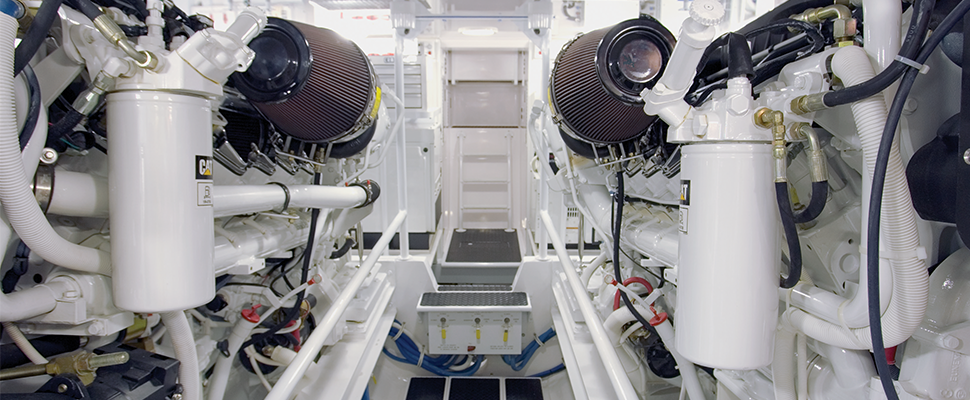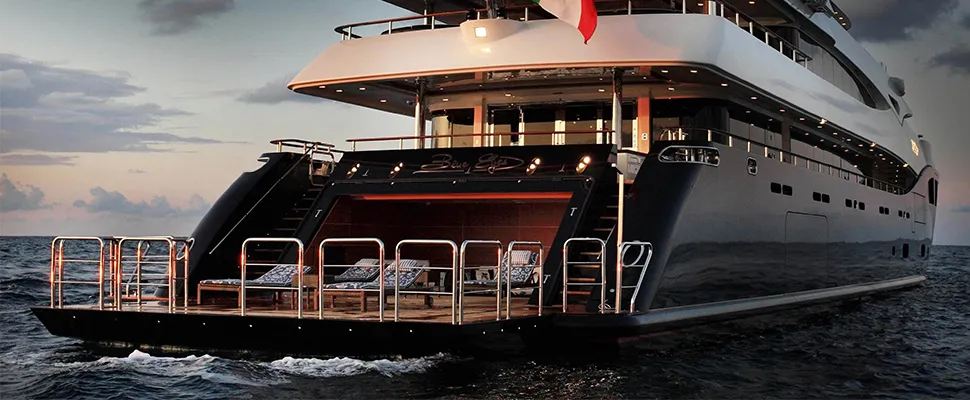Ensure your vessel is ready for the charter season or a new onboard challenge with our comprehensive guide. This...

Yacht Engines Guide
Engines are often likened to the vital core of any motoryacht, serving as the driving force that propels a vessel forward and maintains its operation amidst the vast expanse of ocean waters. CONSO delves into the fundamental aspects of yacht engines, catering to both crew members aspiring to work within the engine room and enthusiasts seeking deeper insights into engine mechanics.
Yacht Engine Services: Does Size Matter?
It is evident that an engine designed for a 40-foot yacht differs significantly from that of a 40-meter superyacht, considering factors such as size, weight, power, and complexity.
While engines for smaller yachts possess their own technical intricacies, those found in superyachts are notably "extremely complex," as noted by John from Premier Separator Services. He elucidates, "Superyachts incorporate numerous auxiliary systems beyond the main engine, encompassing auxiliary equipment, generators, air conditioning, and sewage treatment plants. While the primary distinction between yacht and superyacht engines lies in size, superyacht engines exhibit heightened complexity and efficiency when maintained diligently."
Varieties of Yacht Engines
Jean-Francois Conso of CONSO highlights the diverse spectrum of engines, spanning from six-cylinder to 16-cylinder configurations, and encompassing renowned brands such as MAN, MTU, Cummins, Deutz, Cat, and Baudoin. However, MTU and Cat engines reign as the favored choices aboard yachts ranging from 80 feet to 80 meters.
In terms of fuel preference, diesel remains predominant for yacht and superyacht engines, evolving alongside technological advancements to offer cleaner combustion and enhanced power output without excessive fuel consumption. Nonetheless, alternative fuels such as liquid natural gas (LNG) emerge as contenders, promising a cleaner energy source for the future.
Sustaining Engine Efficiency
Maintenance emerges as paramount in ensuring the seamless operation of yacht engines at optimal capacity. Jean-Francois advocates for operating engines at 80% of their full power for peak performance, while adhering meticulously to maintenance guidelines outlined by professional engine service providers. Refer to our comprehensive guide on maximizing the efficiency and longevity of yacht and superyacht engines for further insights and recommendations.
The Engine Room: A Maritime Sanctuary
The landscape of yacht engine rooms has undergone remarkable transformations over time, transcending their conventional depiction as dim, cavernous spaces. Engine rooms in contemporary vessels exhibit meticulous design and illumination, with some large superyachts even offering guided tours for onboard guests.
For crew members, acclimating to the engine room environment involves familiarizing oneself with its layout and equipment. John underscores the importance of thorough orientation, advising crew to meticulously trace pipelines and acquaint themselves with every component. Seeking guidance from manufacturers and embracing a proactive approach to learning are encouraged.
Educating Yourself on Yacht Engines
For aspiring yacht crew members venturing into engineering roles, obtaining the Approved Engine Course (AEC) certification marks the initial step, serving as the foundational qualification. Subsequent progression involves acquiring the Marine Engine Operator Licence (MEOL) and attaining the Yacht (Y4) certificate of competency. Explore our comprehensive resources on engineering training courses for further guidance on embarking on a career as a superyacht engineer.





Leave a comment